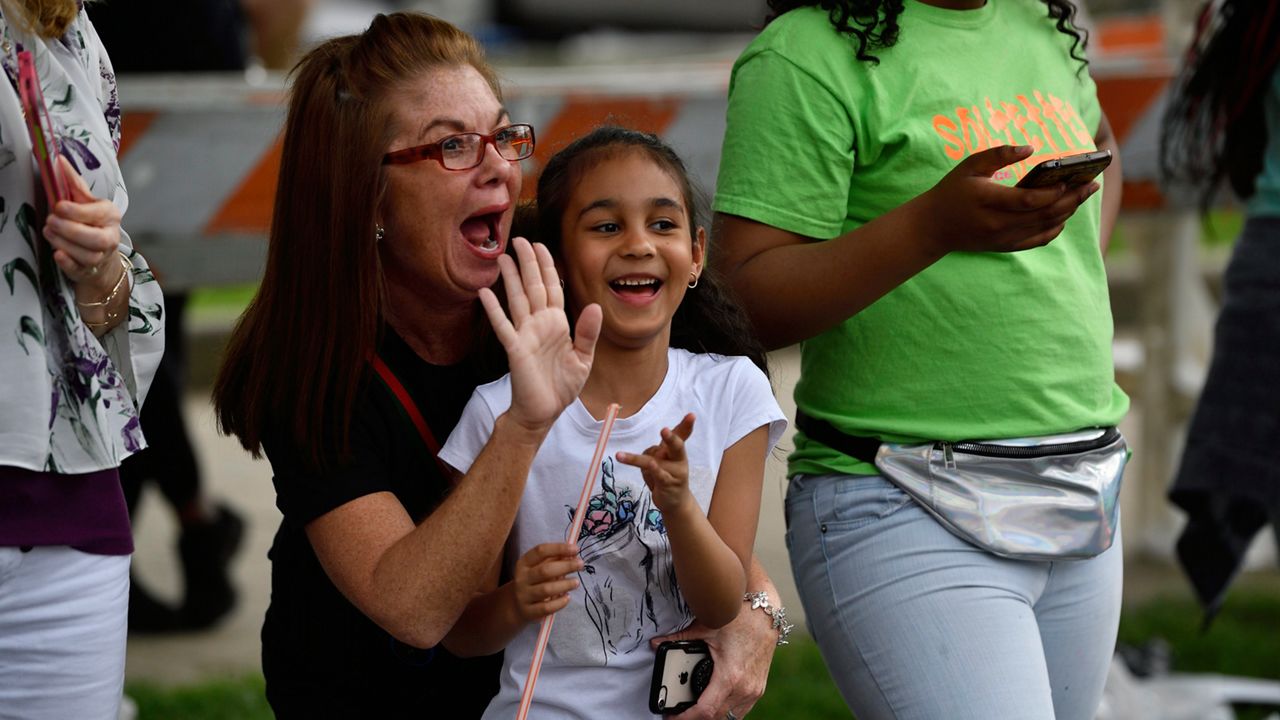OLDHAM COUNTY, Ky. — Some parents are worried about the toll non-traditional instruction (NTI) is taking on their kids' mental health. Even for kids who are back in the classroom, students are missing out on clubs, dances and other social events they used to look forward to.
What You Need To Know
- Parents are voicing their concerns about their kids' mental health and the toll that NTI and social isolation have played
- Mental health ER visits for youth have increased during the COVID-19 pandemic
- Experts say it's important to ask kids how they're feeling in an open, honest conversation
- Spring tends to be a time with increased rates of suicide, experts said
Oldham County parent Lauren Evans said she didn't realize her 15-year-old daughter, who never struggled with mental health concerns before the pandemic, hasn't been doing well.
“I thought she was doing fine. I was being naive because she hadn’t really said a lot," Evans said. "We got into a conversation last week in the car out of nowhere and it broke my heart. She just started bawling. I was like oh my gosh. I had no clue."
Evans said she decided to share this experience with Spectrum News 1 in hopes that it may inspire other parents to check on their kids.
"I know I can’t be the only parent out there who thought their kid was doing well because their grades are good and they are doing okay as far as that. I didn’t even consider that she’s hurting. After making that post on Facebook and talking to other parents, so many kids are hurting,” Evans said.
The latest CDC Kentucky Youth Risk Behavior Survey from 2019 found 1 in 7 high school students seriously considered suicide within a 12-month period. That same report found 1 in 5 middle school students seriously considered suicide at some point in their lives. Dr. Alissa Briggs, a licensed psychologist with UK Adolescent Medicine, worries that number could be rising due to the pandemic.
“The pandemic makes everything that is hard, harder,” Briggs said.
The true toll is hard to determine, but a national CDC report that looked at data from March through October 2020 found mental health emergency room visits for youth increased during the pandemic.
Briggs suggests parents ask their kids about how they're feeling. If you're unsure how to bring it up, she suggests doing it during an activity like family dinner or while playing a game.
“There’s a fear sometimes that if we ask a question or if we talk about it that we will put an idea in a kids’ head. That is absolutely not the case. The opposite is the case. If you talk about it and have an honest conversation with your child, sometimes there is a sense of relief that comes with that which can actually reduce the feelings of isolation,” Briggs said.
She says sometimes parents are afraid to bring it up because of the fear about not knowing what to do with the information. Briggs said just having the conversation will do more than parents may realize.
“When it comes to hard feelings, the important thing to do is validate them and acknowledge them and say yes this is hard for all of us. It’s hard to know what is going to happen in the future. A lot of people worry about that. Sometimes validating the emotion can help make it a little less intense," Briggs said. "Then the next thing is direct the kid back to what we have control over. What can we do today? What can we do tomorrow to bring ourselves joy and help things be a little bit better?”
Briggs said spring tends to be a time with higher rates of suicide. She said that is likely because it is coming off the gloomy winter months. When things start to warm up, it can fuel energy and excitement. For someone who is really struggling, that can fuel agitation.
“I think as we are sitting here in February, I think we have a really important job as parents and caregivers and families to connect with our children and adolescents and ask them how they are doing,” Briggs said.
Dr. Briggs said, if your kids say they've been feeling unhappy, you can talk to their pediatrician or a mental health professional at their school. If they've had thoughts of suicide, take them to the emergency room or call the National Suicide Hotline at 1-800-273-8255.










